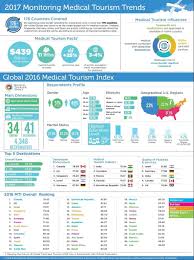
Understanding the Benefits of PPO Health Insurance Plans
The Benefits of PPO Health Insurance Plans
Preferred Provider Organization (PPO) health insurance plans are a popular choice for individuals and families seeking flexibility and choice in their healthcare options. PPO plans offer a balance between cost and coverage, making them a versatile option for many consumers.
Key Features of PPO Health Insurance:
- Provider Network: PPO plans have a network of preferred healthcare providers, including doctors, specialists, and hospitals. Patients have the freedom to choose any healthcare provider, whether in-network or out-of-network. However, utilizing in-network providers typically results in lower out-of-pocket costs.
- No Referrals Needed: Unlike Health Maintenance Organization (HMO) plans, PPO members do not need referrals from a primary care physician to see specialists. This flexibility allows for quicker access to specialized care.
- Coverage for Out-of-Network Care: While staying in-network is encouraged for cost savings, PPO plans still provide coverage for out-of-network care. Members can seek treatment from providers outside the network, though they may incur higher costs.
- Cost-Sharing Options: PPO plans typically involve cost-sharing arrangements between the insurer and the insured individual. This includes copayments, coinsurance, and deductibles that vary based on the specific plan chosen.
Advantages of PPO Plans:
PPO health insurance offers several benefits that make it an attractive option for many individuals:
- Flexibility: With the ability to see any provider without referrals, PPO members have more control over their healthcare choices.
- Coverage Options: PPO plans often provide coverage for a wide range of medical services and treatments, giving members comprehensive healthcare protection.
- Nationwide Access: Many PPO networks extend across states or even nationwide, making it convenient for individuals who travel frequently or reside in different locations.
- Out-of-Network Coverage: The option to receive care from out-of-network providers can be beneficial in situations where specialized treatment is needed or when traveling outside the network area.
In Conclusion
PPO health insurance plans offer a blend of flexibility and coverage that appeals to many consumers looking for personalized healthcare options. By providing access to a broad network of providers and allowing out-of-network care when necessary, PPO plans give individuals greater control over their healthcare decisions while ensuring comprehensive coverage for their medical needs.
Six Key Advantages of PPO Health Insurance: Provider Freedom, Cost Savings, and Comprehensive Coverage
- Flexibility to choose any healthcare provider without referrals
- Access to a wide network of preferred providers for lower out-of-pocket costs
- Coverage for out-of-network care when needed
- No primary care physician required for specialist visits
- Nationwide or even international coverage options available
- Comprehensive protection with options for various medical services and treatments
Five Drawbacks of PPO Health Insurance: Understanding the Cons
- Higher Premiums
- Out-of-Network Costs
- Limited Cost Control
- Pre-Authorization Requirements
- Balance Billing
Flexibility to choose any healthcare provider without referrals
One significant advantage of PPO health insurance is the flexibility it offers in allowing individuals to choose any healthcare provider without the need for referrals. This freedom empowers PPO members to directly access specialists or medical facilities of their choice, enhancing convenience and expediting the process of receiving specialized care. By eliminating the requirement for referrals, PPO plans enable patients to take control of their healthcare decisions and seek treatment from providers they trust, ultimately leading to a more personalized and efficient healthcare experience.
Access to a wide network of preferred providers for lower out-of-pocket costs
One significant advantage of PPO health insurance is the access it provides to a vast network of preferred healthcare providers, resulting in lower out-of-pocket costs for members. By choosing to receive care from in-network providers, individuals can benefit from discounted rates negotiated by the insurance company with these preferred providers. This not only helps reduce the financial burden on patients but also ensures that they have a wide range of quality healthcare options to choose from without compromising on affordability.
Coverage for out-of-network care when needed
One significant advantage of PPO health insurance is the coverage for out-of-network care when needed. This flexibility allows individuals to seek medical treatment from providers outside the designated network, ensuring access to specialized services or care in emergencies. While utilizing in-network providers is encouraged for cost savings, the option for out-of-network coverage provides peace of mind and reassurance that necessary healthcare services can be obtained, even if they are not within the designated network.
No primary care physician required for specialist visits
One significant advantage of PPO health insurance is the freedom it offers in specialist care without the need for a primary care physician referral. Unlike some other healthcare plans that mandate a referral process, PPO members can directly access specialized medical services without delay. This flexibility empowers individuals to proactively manage their health by seeking expert opinions and treatments from specialists when needed, enhancing the efficiency and convenience of their healthcare experience.
Nationwide or even international coverage options available
One significant advantage of PPO health insurance is the availability of nationwide or even international coverage options. PPO plans often have expansive networks that extend beyond local boundaries, allowing members to access healthcare services across states or even countries. This feature is particularly beneficial for individuals who travel frequently, have residences in multiple locations, or seek specialized medical care not available within their immediate area. The ability to receive coverage for healthcare services on a broader scale enhances the convenience and flexibility of PPO plans, ensuring that members can access quality care wherever they may be.
Comprehensive protection with options for various medical services and treatments
One significant advantage of PPO health insurance is the comprehensive protection it offers, coupled with a wide array of options for various medical services and treatments. PPO plans provide individuals with the flexibility to access a diverse range of healthcare services, including preventive care, specialist consultations, diagnostic tests, surgeries, and more. This breadth of coverage ensures that members have the resources they need to address their unique health needs effectively, empowering them to make informed decisions about their well-being without compromising on quality care.
Higher Premiums
One significant drawback of PPO health insurance is the higher premiums that members are required to pay on a monthly basis. In comparison to other types of health insurance plans, such as HMOs or high-deductible plans, PPOs typically demand a more substantial financial commitment in the form of monthly premiums. This increased cost can be a deterrent for individuals and families seeking more affordable healthcare options, as the higher premiums associated with PPO plans may strain their budget and limit their ability to access comprehensive coverage.
Out-of-Network Costs
One notable drawback of PPO health insurance is the potential for substantial out-of-pocket expenses when seeking care from out-of-network providers. While PPO plans offer the flexibility to choose any healthcare provider, including those outside the network, the cost of such services can be considerably higher. Patients may face increased deductibles, coinsurance, and copayments when utilizing out-of-network care, leading to financial strain and unexpected healthcare costs. It is essential for individuals with PPO plans to carefully consider the implications of out-of-network care and weigh the financial trade-offs before seeking treatment from providers not included in their plan’s network.
Limited Cost Control
One significant drawback of PPO health insurance is the limited cost control it provides. While PPO plans excel in offering flexibility and choice of healthcare providers, they often lack stringent cost control measures compared to HMO plans. This can result in potential higher overall costs for individuals, as the freedom to see out-of-network providers or specialists without referrals may lead to increased expenses. Patients need to be mindful of their healthcare utilization to avoid unnecessary out-of-pocket costs that can accumulate with the flexibility offered by PPO plans.
Pre-Authorization Requirements
One notable drawback of PPO health insurance plans is the pre-authorization requirements imposed by insurers for certain treatments or services. This means that patients may need approval from the insurance company before undergoing specific medical procedures or receiving particular healthcare services. The pre-authorization process can be time-consuming and bureaucratic, creating administrative hurdles for patients and potentially delaying necessary care. This additional step in accessing treatment can be frustrating for individuals seeking timely medical attention under their PPO plan.
Balance Billing
A significant con of PPO health insurance is the practice of balance billing, which can create financial challenges for patients seeking care from out-of-network providers. Balance billing occurs when the healthcare provider charges more for services than what the insurance company is willing to cover, leaving the patient responsible for paying the remaining balance. This unexpected cost burden can lead to financial strain and uncertainty for individuals already dealing with medical expenses, highlighting a potential drawback of PPO plans in terms of out-of-network care.



